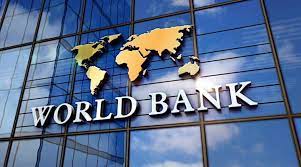The World Bank has reaffirmed its economic growth forecast for Nigeria at 3.3 percent for 2024, noting the nation’s economy showed mild buoyancy in the early part of the year despite macroeconomic adjustments.
However, the World Bank downgraded its forecast for Nigeria’s economic growth in 2025 to 3.5 percent, down from the 3.7 percent forecast made in January.
The World Bank also revised its forecast for Sub-Saharan Africa’s (SSA) economic growth in 2024, lowering it to 3.0 percent from the 3.8 percent previously projected in January.
The report highlighted that growth in SSA weakened to 3.0 percent in 2023, with the region’s largest economies—Nigeria, South Africa, and Angola—experiencing particularly sluggish performance. Despite this, early 2024 saw a pickup in private sector activity, supported by a strengthening global economy.
Many economies in SSA continue to grapple with weak government balance sheets due to low revenue collection and high debt-service costs, compounded by the adverse effects of currency depreciations. In Nigeria, growth slowed to 2.9 percent in 2023, but the economy showed signs of mild buoyancy in early 2024.
Looking ahead, the World Bank projects growth in SSA to increase from 3.0 percent in 2023 to 3.5 percent in 2024 and around 4 percent annually in 2025-26. This improvement is expected as fading inflationary pressures allow for interest rate cuts, boosting private consumption and investment.
Growth in the region’s largest economies is anticipated to rise from 1.8 percent in 2023 to 2.4 percent in 2024 and average 2.6 percent in 2025-26, though this remains below the region’s average growth. Non-resource-rich economies are forecast to maintain growth above their historical average rate, while resource-rich economies are expected to recover from their slow growth in 2023, which was mainly due to declining metal prices.




